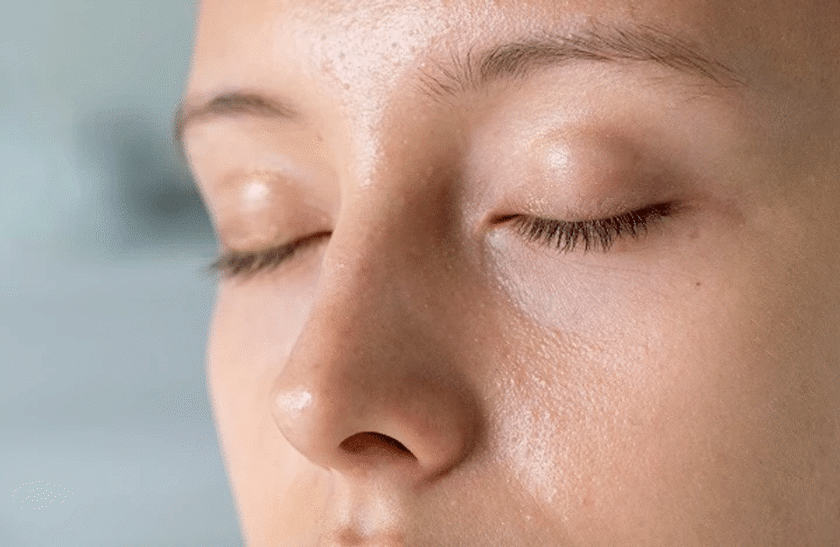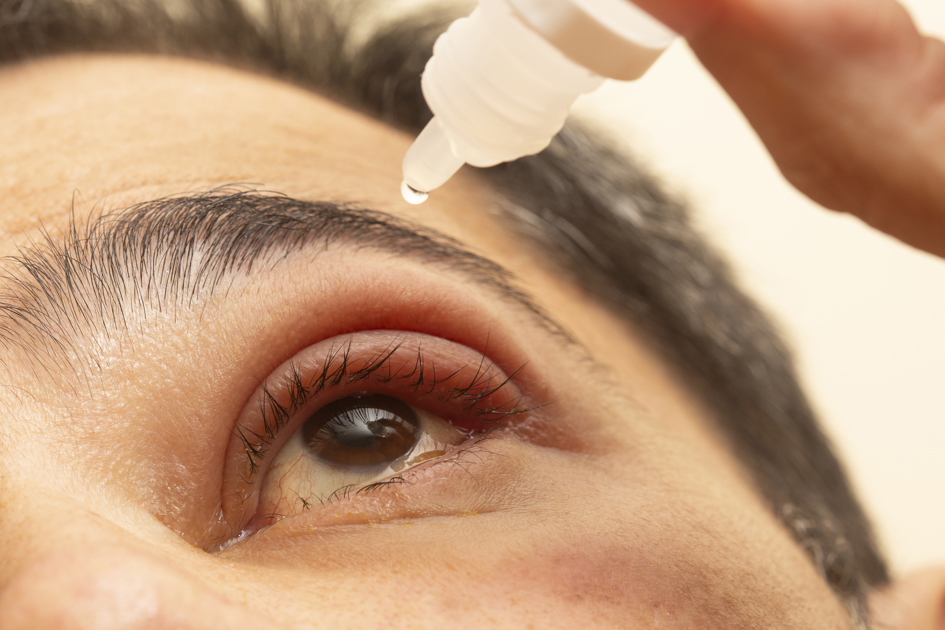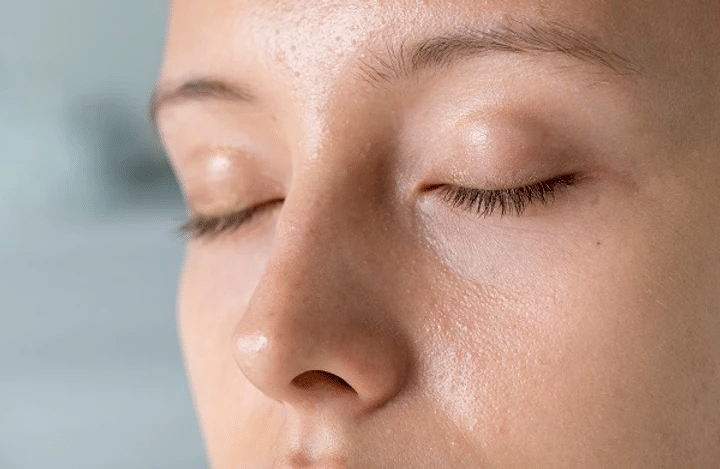Dry eye is a common condition that can cause significant discomfort and difficulties in everyday life. While it is rarely a serious threat to eye health, finding a way to manage it can help alleviate its frustrating symptoms.
Understanding Dry Eye Management
The condition is caused by issues with the way the eye uses tears to lubricate its surface. It can cause irritation, watery eyes, inflammation and blurry vision. These symptoms can make everyday tasks like driving and reading more difficult. Understanding the condition and its treatment or management options is a great first step to limit your symptoms and make living with the condition easier.

With this guide, you can learn about the most effective techniques for managing dry eye as well as some tips on how to avoid it in the first place.
Identifying and Diagnosing Dry Eyes
Identifying dry eyes is as simple as booking a comprehensive eye examination. However, if you think you may have dry eyes (or dry eye syndrome) here are some symptoms to help you identify it:
- Discomfort or itchiness in and around the eyes
- A sensation of stinging in the eyes
- Red eyes
- Blurry vision (some people experience difficulty seeing at night)
- Sensitivity to light
- Excessive blinking
- Excessive tearing (a reflex caused by dryness in the eyes may lead to overproducing tears)
If you think you have dry eyes and are looking to treat them, you should seek a professional diagnosis. During a comprehensive eye examination, your optometrist will use your case history, symptoms, and assessment of your eyes to determine which type of dry eye you have and what might be causing it. This will help them to offer a recommendation on how to treat or manage your condition.

Many things can cause dry eyes, so your optometrist may ask you some questions about your lifestyle, environment, and any medication you are taking. Part of your management or treatment plan may mean making changes to your everyday routine, diet, and environment.
Combatting Dry Eyes: Expert Strategies and Tips
There is no one management plan that will be best for everyone with dry eyes – the right choice for you depends on what’s causing the condition. This is why getting professional advice is always the best option for treating your dry eye.
Nevertheless, here are some of the most effective strategies for combatting dry eyes. They work in many cases and will usually enable you to alleviate your symptoms.
-
Lifestyle Modifications and Home Remedies
Hydration and Nutrition:
Your eyes use tears to keep them lubricated and staying hydrated helps to increase tear production. Drinking plenty of water throughout the day can limit dry eye and prevent it from occurring in the first place. A balanced diet is also important for improving eye health and minimising dry eye. Foods rich in vitamins and Omega 3 fatty acids are vital; this includes, leafy vegetables, fish, nuts, and flaxseed.
Blinking Techniques and Eye Exercises:
Blinking helps to spread tears across the eye and keep them lubricated. When we carry out certain tasks we may stop blinking as frequently leading to dryness. Combatting this through actively blinking can help to alleviate dryness. Similarly, carrying out eye exercises can limit eye strain and dryness. Common eye exercises include gentle massage around the eyes and shifting focus between distant and nearby objects.
Quitting Smoking:
Smoking is linked to many different eye conditions including dry eye. Quitting smoking is challenging, but can make a significant difference to your general and eye health.
-
Adjusting Environmental Factors
Sometimes dry eyes are caused by environmental factors including the weather (wind, dryness), pollution, sleep loss and long periods of focusing on screens. Changing the way you carry out certain activities or making changes to your environment can help minimise environmentally caused dry eye.
This can mean:
- Using a humidifier in your bedroom or workplace
- Taking steps to improve your sleep
- Practicing blinking exercises when using screens for extended periods
- Avoiding smokey environments
-
Over-the-Counter Remedies: Choosing the Right Eye Drops
The most common over-the-counter treatment for dry eye is a type of medicated eye drops often called artificial tears. These eye drops are designed to mimic tears to lubricate the eye and stop it from becoming irritated. They can provide temporary relief from symptoms and limit complications like inflammation. Other forms of lubricating eye drops and gels are available, which may provide more lasting relief depending on the case.
-
Prescription Treatments and Therapies
For persistent or severe dry eyes, prescription treatments or therapies may be recommended. This can include:
- Medicated eye drops to treat inflammation
- Punctal plugs which keep the eyes from draining tears too quickly
- Medications to help tear production
- Light therapy, is a new form of treatment with promising results (Toyos, McGill and Briscoe, 2015)
For treating severe dry eye, optometrists are likely to suggest more than one treatment or management option and may recommend making changes to your lifestyle or environment.

Creating Your Personalised Dry Eye Management Routine
Everyone experiences dry eye differently, but developing an eye care routine can help you successfully manage your dry eye and improve your eye health.
Your routine will depend on the probable causes of your dry eye and any medication you have been prescribed. Considering your diet, screen time, environment and medications can help you build a daily routine that works for you.
If you work using a computer, screen time may be pinpointed as a cause of your dry eye. In this case, your routine could involve taking regular breaks, practising regular blinking, using a warm compress, eye exercises, and using artificial tears.
You may also introduce foods into your diet rich in Omega 3 fatty acids and vitamins and ensure they form a regular part of your diet. Keeping your eyes and eyelids clean, especially if you use makeup, may also form part of your care routine.
Using trial and error, you can find the best way to manage your condition through personal eye care. However, it’s important to remember to seek professional help and advice. Regular eye exams will ensure that you receive any treatment you need and give you the opportunity to discuss your management routine and get the latest information on eye health and care.
Preventing Dry Eye Syndrome
Understanding the causes of dry eye, we’ve listed above can help you to avoid the condition or minimise its effects. Like the care plan, adopting good eye health practices in your everyday life and attending regular eye exams are key to prevention.
If you live in an environment that is dry, windy, or heavily polluted consider taking steps to keep your eyes hydrated. Drinking plenty of water, using artificial tears and actively blinking are all effective ways to keep your eyes lubricated. Similarly, if the air in your home is dry consider using a humidifier.
As with managing dry eye, making changes to our lifestyle can help to prevent it. This may mean quitting smoking, changing your diet to improve eye health, or taking breaks from screen time.








